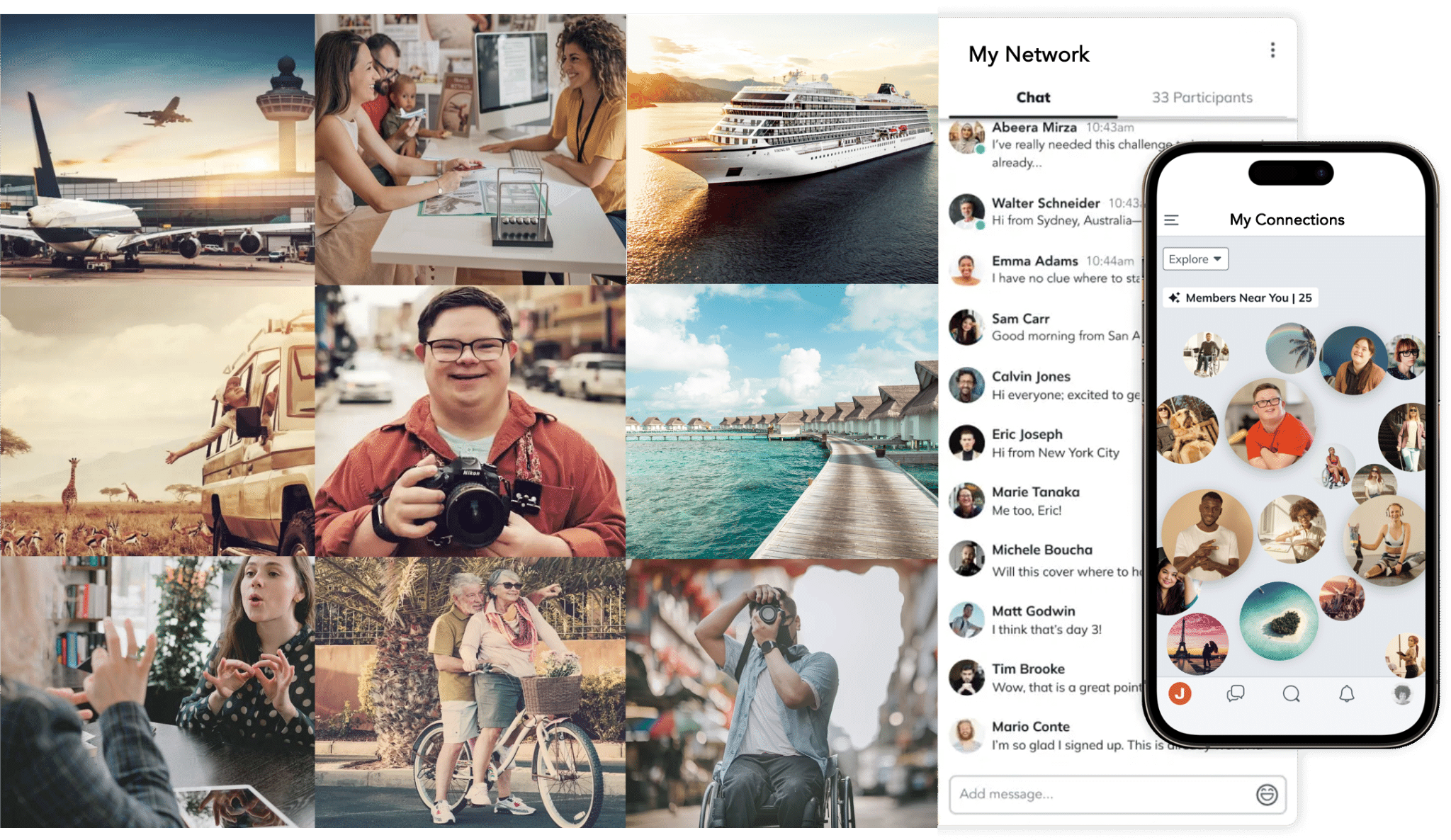How Technology is Improving Accessible Travel

Traveling with a disability can present unique challenges. Accessibility issues, lack of information, and other barriers can make it difficult to plan and execute a successful trip. In fact, in 2021, $7,239 wheelchairs or scooters were lost, damaged, delayed, or stolen on the country’s largest airlines according to the air travel consumer report. And a 2021 survey conducted by AbleMove reports that out of over 300 wheelchair users, 43% say they no longer fly due to their past experiences.
AAPD’s Advocacy for Accessible Travel
However, the American Association of People with Disabilities (AAPD) is working to change this by providing resources and support to travelers with disabilities. One of the ways AAPD is making a difference is by advocating for accessible travel. This includes working with airlines, hotels, and other travel providers to ensure that their services are accessible to people with disabilities. For example, AAPD has advocated for airlines to improve their wheelchair handling procedures and for hotels to provide more accessible rooms.
The Role of Technology
Technology is playing an increasingly important role in improving accessible travel for people with disabilities. Advances in technology, web-based systems, artificial intelligence, autonomous vehicles, 5G technology, and “smart” states and cities can provide new ways of navigation, access to services, and employment. But development of these new tools often outpaces the development of accessibility standards, and disabled people are frequently excluded from enjoying the benefits of these tools.
One example of how technology is improving accessible travel is the Apple AirTag. This small tracking device can be attached to luggage or mobility aids such as wheelchairs or scooters to help travelers keep track of their belongings. This can provide peace of mind for travelers with disabilities who may be concerned about losing or misplacing their mobility aids during transit.
The rise in the gig economy creates new flexible employment options for people with disabilities but also creates major questions and concerns regarding these issues including worker classification, civil rights and worker protections, portable benefits, informed choice of worker status and data collection.
Research on these emerging technologies reveals algorithms, artificial intelligence, and other technologies can replicate and increase biases around gender, race, disability, and other identities. Understanding these shifts and how they interact with and influence each other is among the key policy and civil rights decisions of the next 30 years.
Resources and Support from AAPD
In addition to advocacy, AAPD also provides practical resources and support to travelers with disabilities. This includes information on accessible travel destinations, tips for planning an accessible trip, and resources for finding accessible accommodations and transportation. By providing this information, AAPD aims to empower travelers with disabilities to plan and execute successful trips.
Promoting Inclusive Tourism
Another way AAPD is making a difference in the realm of travel is by promoting inclusive tourism. This means advocating for travel destinations to be welcoming and accessible to people with disabilities. Inclusive tourism not only benefits travelers with disabilities but also has economic benefits for the destinations themselves. By making their attractions and services accessible, destinations can attract a wider range of visitors and boost their local economies.
Raising Awareness
AAPD is also working to break down barriers to accessible travel by raising awareness about the issue. This includes sharing stories of travelers with disabilities and highlighting the challenges they face. By raising awareness about these issues, AAPD hopes to inspire change and make travel more accessible for everyone.







